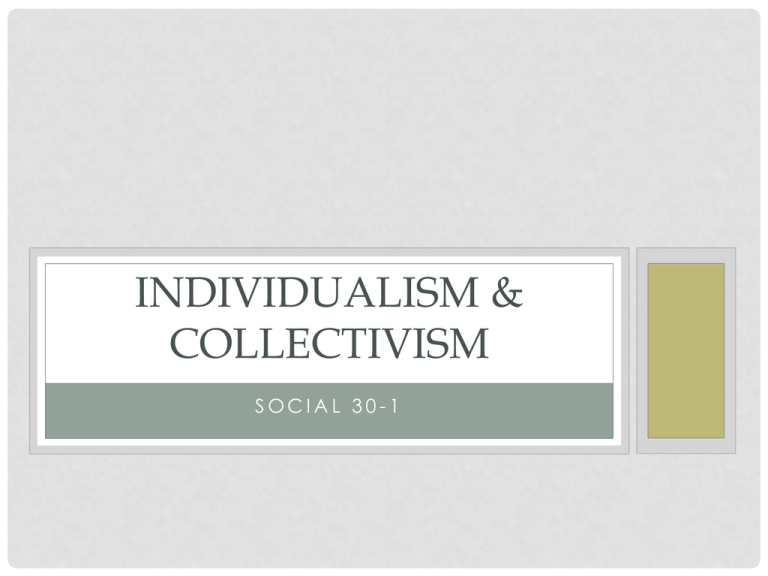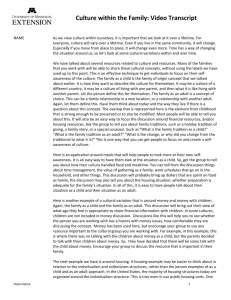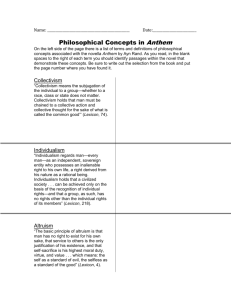readings
advertisement

INDIVIDUALISM & COLLECTIVISM SOCIAL 30-1 • Understanding Collectivism & Individualism READINGS • Pages 63-95 • In addition to the lecture you must • Make additional notes on these pages • Identify key terms THE VALUES OF INDIVIDUALISM • Read pages 71-79 in your textbook • Start at the heading “Principles of Individualism” • Copy and expand on the concept map on the following slide • Integrate definitions, examples and key facts into your concept map • Place your completed concept map in your notes as a study aid WEB MAP OF INDIVIDUALISM WHAT DID YOU ADD? THE VALUES OF COLLECTIVISM • Read pages 80-86 in your textbook • Start at the heading “Principles of Collectivism” • Copy and expand on the concept map on the following slide • Integrate definitions, examples and key facts into your concept map • Place your completed concept map in your notes as a study aid WEB MAP OF COLLECTIVISM WHAT DID YOU ADD? LESSON SUMMARY • You learned that individualism and collectivism are the two main approaches to organizing societies • Each approach has a series of core values that relate to how people see their place in society INDIVIDUALISTS… Value • Independence • Personal freedom • Self-reliance • Self-interest COLLECTIVISTS… Value • Teamwork • Interdependence • Equality • Collective Responsibility DOMINANT IDEOLOGIES OF THE 20TH CENTURY • While no real-world society is completely collectivist or completely individualism, some of the ideologies of the twentieth century have incorporated collectivist or individualist values as guiding principles • These include: • • • • Communism Fascism Democratic Capitalism Democratic Socialism DOMINANT IDEOLOGIES OF THE 20TH CENTURY Communism • Holds that all property should be owned by the state and all people should work for the state • Represents an extreme interpretation of collectivism DOMINANT IDEOLOGIES OF THE 20TH CENTURY Fascism • Takes an extreme collectivist approach to political organization, but rejects collectivist notions of social equality • Fascism also adheres to some individualist values in the areas of economics DOMINANT IDEOLOGIES OF THE 20TH CENTURY Democratic Capitalism • In its truest form, strongly advocates both individual political and economic freedom • Democratic socialists, while supporting DOMINANT IDEOLOGIES OF THE 20TH CENTURY Democratic Socialism • Democratic socialists, while supporting individualist values in terms of political freedom, incorporate collectivist values into their economic policies LET’S SEE THESE FOUR PERSPECTIVES – ON THE SPECTRUM











